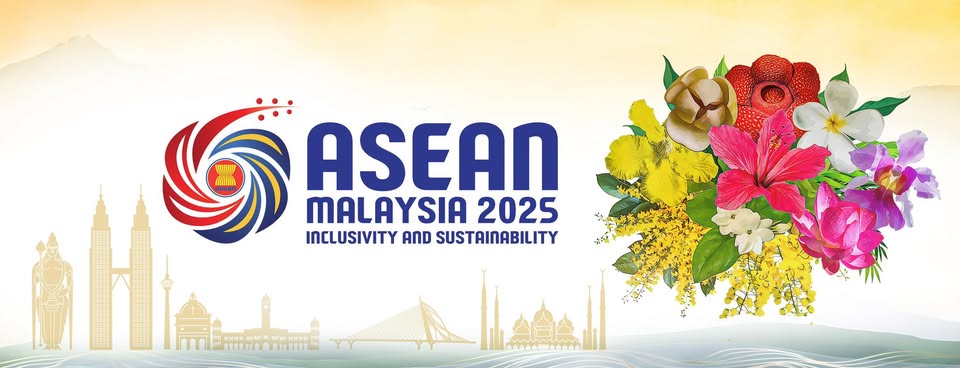
Malaysia’s silence at the recent UN Rohingya summit underscores the need for legal reform, refugee protection, and regional leadership amid Myanmar’s deepening instability and fragmented control of Rakhine
By Dr Mohd Safar Hasim
At the recent UN High-Level Conference on the Rohingya Crisis (September 30–October 1, 2025), global leaders reaffirmed their commitment to protect the Rohingya people and hold Myanmar’s military accountable for crimes against humanity. The summit concluded with calls for safe, voluntary repatriation, increased humanitarian aid, and the establishment of international protection mechanisms.
Yet Malaysia—despite hosting over 100,000 registered Rohingya refugees—did not deliver a formal statement nor pledge new support.
This absence signalled a retreat from Malaysia’s historical role as a humanitarian voice in ASEAN and the Muslim world, and raised questions about its long-term commitment to refugee protection.
The urgency of Malaysia’s leadership is underscored by the deteriorating situation in Myanmar. The country’s ability to govern Rakhine is critically diminished.
The Arakan Army (AA), an ethnonationalist armed group representing Rakhine Buddhists, now controls 14 of the state’s 17 townships, including the entire border with Bangladesh. The AA has established parallel governance structures, including courts, taxation systems, and administrative networks, while Myanmar’s military retains control over only a few urban centres such as Sittwe and Kyaukphyu.
This shift in territorial control has created a fragmented landscape in which coordinated repatriation or protection plans are nearly impossible to implement.
Complicating matters further is the proliferation of competing actors. The AA and its political wing, the United League of Arakan (ULA), operate independently of Myanmar’s central government.
The National Unity Government (NUG), formed in opposition to the military junta, has limited influence in Rakhine.
Meanwhile, Rohingya-led groups such as the Arakan Rohingya National Alliance (ARNA) and the Arakan Rohingya Salvation Army (ARSA) represent divergent strategies and constituencies.
The result is a volatile and contested environment where the Rohingya remain trapped between armed factions, statelessness, and international inertia.
Despite this complexity, Malaysia has long offered refuge to Rohingya families, with arrivals dating back to the 1990s and surging after the 2017 genocide.
However, Malaysia remains a non-signatory to the 1951 Refugee Convention and its 1967 Protocol. This legal gap is not incidental—it reflects a deliberate policy stance shaped by concerns over sovereignty, resource constraints, and political sensitivities.
Malaysia’s Immigration Act 1959/63 does not distinguish refugees from undocumented migrants, making any formal recognition of refugee status legally and administratively challenging.
Policymakers also fear that accession to the Convention would strain public services such as healthcare, education, and employment, especially without guaranteed international support.
Furthermore, refugee issues intersect with ethnic and religious dynamics that are often politicised during election cycles. By remaining outside the Convention, Malaysia retains policy flexibility—but at the cost of clarity, protection, and international credibility.
One of the most urgent and solvable challenges facing Rohingya refugees is the lack of access to formal education, particularly for stateless children born in exile.
Without schooling, an entire generation risks being trapped in poverty, marginalisation, and vulnerability to trafficking. Malaysia has quietly incubated community-based education models that offer a blueprint for scalable reform.
Albukhary International University (AIU), for example, runs Project HOPE in Alor Setar, providing structured education to Rohingya children aged 3 to 14. The programme includes English, Science, Computing, and mentorship by Myanmar student volunteers, and operates in partnership with local madrasahs and international NGOs. Institutions such as IIUM have also supported informal learning centres, vocational training, and psychosocial support for refugee youth.
These initiatives demonstrate that education for stateless children is not only feasible—it is cost-effective, socially transformative, and deeply aligned with Malaysia’s humanitarian ethos.
But they remain limited in scope and vulnerable to policy ambiguity. To scale these efforts, Malaysia must establish a national refugee education framework that allows certified learning pathways and integration with ASEAN standards.
More importantly, it must consider acceding to the 1951 Refugee Convention, enabling legal recognition and protection for those who have already found refuge within its borders.
Globally, Malaysia is not alone in hosting Rohingya refugees. Bangladesh remains the largest host, with over 900,000 in Cox’s Bazar. Other countries—including Indonesia, Thailand, Saudi Arabia, India, Pakistan, the United States, Canada, Australia, and several EU nations—have also accepted Rohingya populations.
Many of these countries are signatories to the Refugee Convention, which enables structured protection, integration, and international cooperation. Malaysia’s continued non-signatory status places it at odds with this global consensus and undermines its ability to lead on refugee diplomacy.
To restore its leadership and moral standing, Malaysia must take decisive steps. It should consider acceding to the 1951 Refugee Convention and 1967 Protocol, with ASEAN-specific reservations if necessary.
It must establish a national refugee framework that guarantees access to education, healthcare, and legal employment. It should reassert its voice at UN forums, especially as ASEAN Chair and OIC member, and support regional burden-sharing through safe corridors and education partnerships.
Malaysia has shown compassion. It is time to show commitment. Signing the Refugee Convention would not only protect vulnerable lives—it would reaffirm Malaysia’s place on the global stage as a principled and proactive leader in humanitarian diplomacy.
The views expressed here are entirely those of Dr Mohd Safar Hasim, currently a Council Member of the Malaysian Press Institute (MPI)
WE